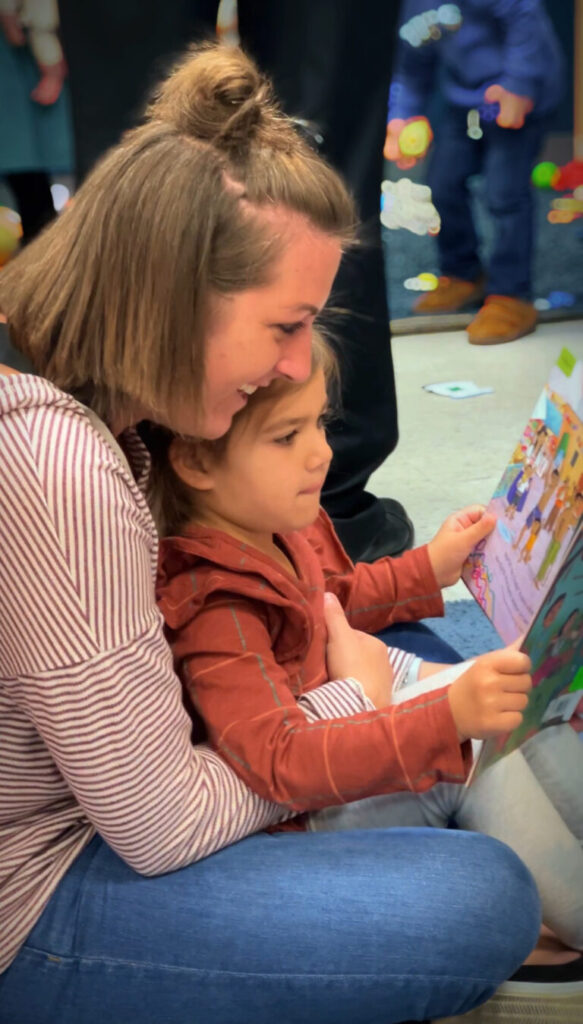Reading to young children has long been celebrated as one of the most impactful activities parents can engage in to support their child’s development. It’s more than just a soothing bedtime ritual; it’s a powerful tool that fosters language and literacy skills that will benefit children throughout their lives. Recent research has illuminated the mechanisms behind this, providing insights into how and why early parent-child book reading interactions are so crucial.
Why Reading Matters
One of the key findings from the study highlights that the quantity of parent-child book reading interactions is directly linked to important child language and literacy outcomes. These outcomes include a child’s receptive vocabulary, reading comprehension, and internal motivation to read. What makes this connection particularly noteworthy is that it persists even when accounting for other factors, such as parent language input outside of book reading, the child’s own contributions to book reading interactions, and the family’s socioeconomic background.
The Language of Books vs. Everyday Conversation
A fascinating aspect of the study is the discovery that the language used by parents during book reading is more complex than the language used in everyday conversations. Books inherently contain a richer vocabulary and more intricate sentence structures, which parents naturally incorporate into their interactions with their children. This linguistic complexity is not confined to the text alone; parents tend to expand on the content by discussing the illustrations, relating the story to the child’s experiences, and introducing new concepts. This richer language environment is crucial for children’s language development and is less likely to occur during non-book-related interactions.
The Impact on Motivation and Comprehension

Another significant finding is the link between early book reading and a child’s later motivation to read. Children who are read to from a young age develop an intrinsic interest in books, which in turn fosters a love of reading. This early exposure creates a virtuous cycle: the more children are read to, the more they enjoy reading, leading them to read more as they grow older. This increased exposure to reading enhances their language skills and reading comprehension, further encouraging a love of reading.
Beyond Decoding: Comprehension is Key
The research also underscores that while early book reading significantly predicts vocabulary and reading comprehension, it does not have the same impact on decoding skills, such as phonological awareness. This finding is consistent with the idea that book reading primarily supports the understanding and enjoyment of language rather than the mechanical aspects of reading. Interventions focusing on phonological skills, like nursery rhymes or word games, may be more effective for developing decoding abilities.
The Role of Parent-Child Interaction
The study’s use of naturally occurring parent-child interactions sheds light on the various types of language used during book reading. Parents don’t just read the words on the page; they engage in a dynamic conversation with their children. They ask questions, make observations, and encourage their child to think critically about the story. These interactions are more than just educational; they also strengthen the bond between parent and child, making reading a shared, enjoyable experience.
Practical Implications for Parents
So, what does this mean for parents? The findings suggest that the act of reading to your child is invaluable, not just for the immediate enjoyment it brings but for the long-term benefits it offers. By regularly engaging in book reading, parents can create a rich linguistic environment that supports their child’s language and literacy development. The focus should not solely be on reading the words but on interacting with the content, discussing the story, and relating it to the child’s world. This approach will help build a strong foundation for language skills, a love of reading, and ultimately, academic success.
In conclusion, reading to young children is one of the most valuable things parents can do to support their development. The benefits of these early reading interactions extend far beyond language and literacy—they also foster a love of reading, support academic success, and set the stage for a lifetime of learning. So, whether it’s a bedtime story or a quiet moment during the day, make reading a regular and cherished part of your child’s life. The rewards will last a lifetime.
Source:
Ece Demir-Lira Ö, Applebaum LR, Goldin-Meadow S, Levine SC. Parents’ early book reading to children: Relation to children’s later language and literacy outcomes controlling for other parent language input. Dev Sci. 2019 May;22(3):e12764. doi: 10.1111/desc.12764. Epub 2019 Jan 15. PMID: 30325107; PMCID: PMC6927670. https://www.ncbi.nlm.nih.gov/pmc/articles/PMC6927670

